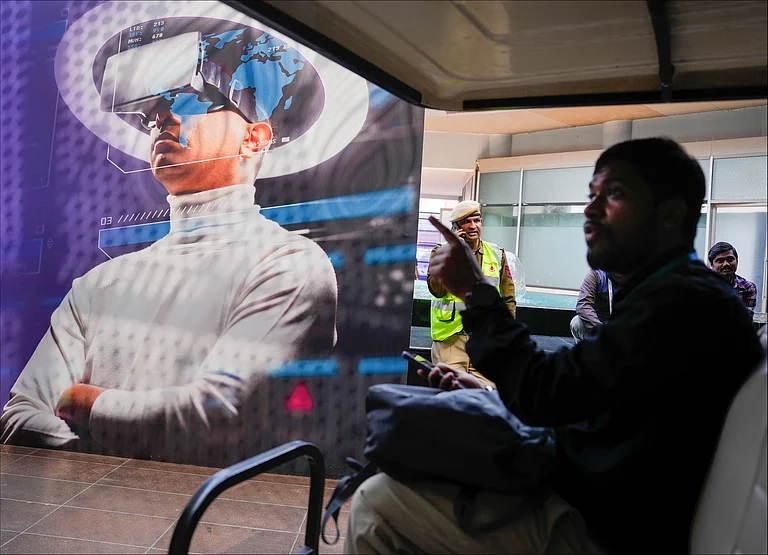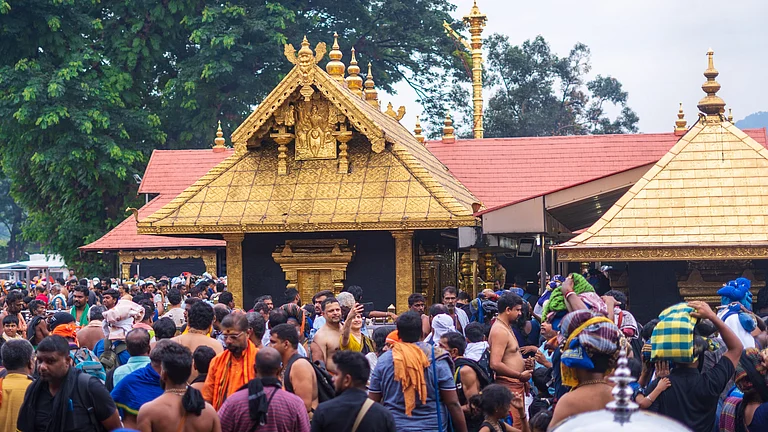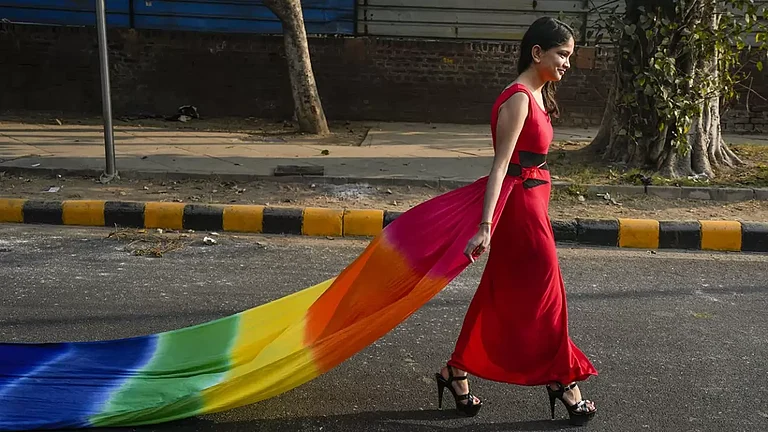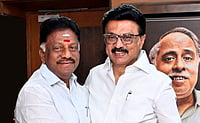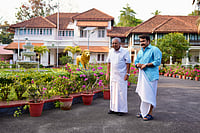
Summary of this article
Increasing numbers of Muslim couples in Kerala are remarrying under the Special Marriage Act to ensure daughters get an equal share of family property—rights they believe Muslim personal law does not guarantee.
Conservative religious groups denounce the trend as un-Islamic, the practice is gaining ground
Those who registered their marriage under the Special Marriages Act say their fight is not against religion, but against the patriarchal interpretation of the holy text
When his daughter, a law student, paused during a casual conversation and asked Advocate C. Shukkur why Muslim personal law continued to deny daughters an equal share in inheritance, he wasn’t taken aback. As a practising lawyer, long-time social activist, and well-known actor in Malayalam cinema, he was well aware that her question reflected an undeniable reality. But hearing it from his own child forced both him and his partner, Dr Sheena Shukkur into deeper introspection.
A Quiet Revolution
The steps he and his partner took after this introspection and deliberation heralded a silent revolution in the Muslim community-a quiet but significant reform movement led not by institutions but by families. Across Kerala, especially in the Muslim-majority northern districts, more and more couples who had originally solemnised their marriages under Muslim personal law are now choosing to re-register their unions under the Special Marriage Act.
Their reason is simple yet profound: to ensure that their daughters are legally entitled to the same inheritance rights as their sons. By opting for a secular legal framework, these couples are silently resisting the patriarchal restrictions embedded in traditional interpretations of Muslim personal law and challenging the conservative forces that seek to regulate their private lives.
For many, this shift is not an act of rebellion against faith, but a pragmatic step to secure justice within the family—one that reflects a growing awareness, changing aspirations, and a willingness to reinterpret long-entrenched norms.
“We decided to register our marriage on Women’s Day in 2023. I announced it on social media, and the community's response was overwhelming. What moved me most was that many couples—whose marriages had been solemnised decades earlier—came forward to register their unions under the Special Marriage Act after seeing our decision.
But the pushback from conservative groups and political Islamist circles was equally intense. They unleashed a barrage of vitriol in family and local WhatsApp groups, even attempting to pressure my sister, who fully understood the reasons behind our decision. Yet their efforts barely made a dent. The patriarchal motives they tried to cloak in the language of religious puritanism were too transparent for anyone to miss,” Advocate Shukkur said, recalling the silent revolution he had sparked—almost unwittingly.
Conservative Push Back
Despite the growing number of Muslim couples opting to register their marriages under the Special Marriage Act, patriarchal and conservative impulses remain deeply entrenched in sections of the community. The case of Kunjipathumma illustrates how religious doctrine is often deployed to safeguard material interests rather than spiritual principles.
Kunjipathumma, a retired government employee, executed a registered gift deed in 2022, transferring all her property to her daughter and granddaughter. Under Muslim personal law, an only daughter is entitled to receive only a fraction of her mother’s property, with the remaining share passing to the mother’s brothers upon her death. By gifting her entire property to her daughter, Kunjipathumma effectively challenged this long-standing patriarchal framework.
However, after learning of her decision, her brothers intervened. They took her to their home and persistently pressured her, invoking religious arguments and claiming she had violated “Allah’s diktat.” Under sustained emotional and religious coercion, she eventually filed a petition seeking cancellation of the gift deed executed in favour of her daughter.
Before the sub-court in Thrissur district could deliver its verdict, Kunjipathumma passed away. Her brothers have since impleaded themselves in the case, which continues to remain pending before the court.
For Kunjipathumma, the backlash did not arrive as loud accusations but as a slow, suffocating emotional assault from the people she loved.
Overwhelmed by guilt that was carefully cultivated, Kunjipathumma began to doubt her own judgment. The emotional burden of standing against her own family—at her age, with her vulnerabilities—became too heavy to carry, which forced her to approach the court to cancel the deed.
When Neju and Ismail decided to register their marriage under the Special Marriage Act, it was not a rejection of their faith but a deliberate step to ensure gender equality in their relationship. For Neju, who serves as the convenor of the Forum for Gender Equality Among Muslim Women (FORGEM), the decision was both deeply personal and quietly political. In 2024, the couple formally registered their marriage under the Special Marriage Act—signalling their commitment to a framework that guarantees equal rights, in contrast to the unequal inheritance and marital provisions under Muslim personal law.
“I am a practising Muslim, and after closely reading the Holy Quran, I realised that several provisions in Muslim personal law arise from patriarchal interpretations of the text,” she said. “These interpretations are packaged as divine instructions and imposed on the faithful. But when we break down how the sacred text has been selectively read, many people begin to understand the gap between the scripture and its interpretation. Still, years of indoctrination and the fear of social ostracism stop them from stepping out of the patriarchal boundaries.” There is a perception that inheritance rights matter only to the affluent,” she adds. “But in reality, it is families from lower-income backgrounds who feel the impact of these patriarchal personal laws most acutely.”
Activists associated with the campaign say the shift has now become steady and unmistakable. Every single day, at least one Muslim family—who had originally married under Muslim personal law—quietly walks into a registrar’s office to re-register their marriage under the Special Marriage Act. For many, like 75-year-old Basheer and 70-year-old Hasanath, the move is a small but decisive step toward securing equal inheritance rights for their daughters.
Basheer, who has been married to Hasanath for 35 years, became aware of the discriminatory provisions affecting daughters only after he returned from the Gulf and settled back in Kerala. “He told me he wanted to register their marriage under the Special Marriage Act so that both my sister and I would have full rights to their property,” says Advocate Fathima M.B., his daughter. “We did it without any publicity, just to avoid unnecessary issues within the community.”
Yet, even as elderly couples—deeply rooted in religious customs—take this step, the path is far from easy.
“There were other impediments,” Adv. Shukkur recalls. After a few couples successfully completed the process, the team filed an RTI with various Tahsildars. Their question was simple: For these Muslims who had chosen the Special Marriage Act, which law would govern them?
The reply, however, left them stunned. The officials wrote back saying that Muslim Personal Law would continue to apply, even if the marriage had been registered under the SMA. In other words, the very purpose of the shift—escaping the unequal inheritance provisions—would be defeated.
The activists began approaching one office after another—first the Revenue Secretary, then the Revenue Minister, and the Law Minister—pressing for clarity. An administrative clarification was eventually issued, affirming that the secular, gender-equal provisions of the Special Marriage Act would apply to those who chose it
Court's intervention for gender justice
Later, in a 2024 case, the Kerala High Court held that the relevant section of the Indian Succession Act would apply to those who registered their marriage under the Special Marriages Act, regardless of whether their marriage was solemnised under any personal law.
“Not only in this case, but in two other issues as well, the judgments of the Kerala High Court upheld the rights of Muslim women, by progressively interpreting the Muslim personal laws”, Advocate C Shukkur adds. He was referring to the famous judgement delivered by Justices A Muhammad Mustaque and C S Dias that affirmed a Muslim woman's right to divorce through ‘Khula’, or "reverse talaq," without her husband's consent. The court declared that ‘Khula’ is an absolute right granted by the Quran and is not conditional on the husband's acceptance. The Court overturned a 49-year-old judgment that barred women from this extra-judicial divorce option. The ruling was based on the court's woman-friendly interpretation of Islamic law. “This judgement can be called the Magna Carta when it comes to Muslim women’s rights”, Shukkur adds.
Another important judgement delivered by the Kerala High Court put the brakes on the rights of a Muslim man to marry other women, disregarding the opinion of the existing wife.
In a significant decision, the Kerala High Court has ruled that a Muslim man’s first wife must be given an opportunity to be heard before authorities register his second marriage under the Kerala Registration of Marriages (Common) Rules, 2008.
The judgment came from a Bench led by Justice P. V. Kunhikrishnan, who underscored that the law of the land takes precedence when it comes to the registration of a second marriage—even if Muslim personal law permits a man to marry again under specific circumstances.
The court was hearing a petition filed by a Muslim man and the woman he claimed as his second wife. They argued that the local registrar had unjustly refused to register their marriage. But the Bench was not convinced.
In its order dismissing the plea, the court held that the Registrar of Marriages is duty-bound to issue notice to the first wife before proceeding. If the first wife raises an objection—particularly on the grounds that the second marriage is legally invalid—the matter cannot be resolved at the registration office.
Instead, the court said, the parties must then approach a competent court to determine whether the second marriage stands on a firm legal footing.
The ruling adds a new procedural safeguard for first wives in cases of polygamous marriages claimed under personal law.
The challenges confronting Muslim women in Kerala, many activists argue, should have been addressed long ago through legislative reforms. Yet this has remained elusive, largely because Muslim women are almost entirely absent from the state’s corridors of power. Despite Kerala’s progressive self-image—and despite Muslim women making up approximately 10-15 per cent of the population—none has ever been elevated to a ministerial position.
“This is no accident,” says Adv. Shukkur. “The Muslim League, despite its enormous political influence, has given scant regard to ensuring political representation for Muslim women.”
According to him and several others, influential conservative groups within the community have consistently resisted any attempt at gender reform. The recent Khula judgment, which affirmed a Muslim woman’s right to unilateral divorce, is already being challenged in the Supreme Court. This resistance, activists argue, exposes a deep hypocrisy.
“Why is it that those who insist that personal law must prevail over secular law in civil matters like marriage and inheritance refuse to apply the same logic to criminal matters?” asks Neju Ismail. “If strict Muhammadan law were enforced in criminal cases, thieves’ hands would be chopped off, and adulterers or ‘unbelieving’ men could be stoned. The very people demanding rigid adherence to personal law know full well they would never accept this in the criminal sphere,” she adds, her voice edged with unmistakable disdain. Amid this, many Muslims find themselves caught in a moral and political bind.
A man in his sixties, who recently re-registered his decades-old marriage under the Special Marriage Act, articulates this tension with quiet clarity. “People like me support gender equality—that’s why I chose the SMA. But whenever issues concerning Muslim women are discussed publicly, they get weaponised by Hindutva forces to vilify the entire community as backward or barbaric. That political climate makes honest debate almost impossible.”
Many others interviewed for this story echoed his sentiment, describing the same fear of progressive reform being misused as ammunition by majoritarian politics, even as they privately acknowledge the urgent need for change within the community.





